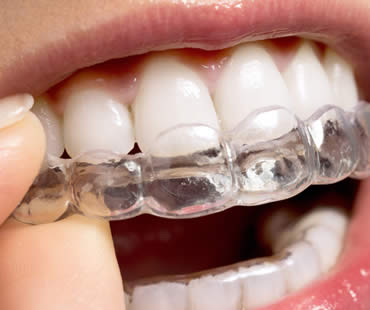
Statistics show that losing natural teeth is still a common occurrence in oral health today. You might be surprised to know that it is estimated that 70% of Americans have lost at least one tooth by middle age. That’s why dentistry has worked hard to come up with an ideal solution as a permanent, comfortable, and attractive way to restore smiles. Dental implants are the answer.
Getting a dental implant consists of having a metal rod, usually made of titanium, surgically inserted into the jaw bone. Once the area has healed from surgery, a crown is typically placed on top to complete the restoration. This procedure results in a very secure and comfortable new tooth that shouldn’t cause problems again.
There’s a long history of other types of tooth replacement options, such as dentures and bridges. Why are dental implants considered to be the preferred choice today?
Appearance – the crown that is placed on top of an implant is aesthetically pleasing, giving you a natural smile.
Tooth preparation – no preparation or reduction to neighboring teeth is necessary with dental implants. The natural tooth structure of existing teeth is preserved.
Comfort – similar to your natural teeth, implants go into your jaw bone. This offers the same comfort and security as real teeth.
Durability – implants are made to last forever. With good care, you can expect them to last the rest of your life.
Diet – there are no dietary restrictions with implants. With dentures and bridges, you might miss out on some foods that could loosen or break your appliance. Implants allow you to eat whatever you’d like.
Maintenance – cleaning implants is the same as cleaning natural teeth. Brushing and flossing is performed normally, and no soaking or external care of appliances is required because the restoration is permanently installed in your mouth.
If you’re looking for a long-term and durable solution for missing teeth, ask your dentist about implants. The success rate is high, and the convenience and comfort can rarely be beaten by other alternatives.
We treat patients from Meriden and the surrounding area

Having an accident that involves your teeth can be one of the scariest types of trauma. It’s not only painful, but brings to mind images of a broken or gapped smile. Unfortunately, reports suggest that over half a million people seek treatment in the emergency room each year for dental related issues. Many emergency rooms are not equipped or trained to handle dental problems, so sometimes all you can do is wait to see your dentist.
Since it’s impossible to know exactly when an accident will happen, it’s a good idea to be prepared with items helpful in a dental emergency. Suggested items to include in a dental emergency kit are gauze, Q-tips, salt packets, a small container, over-the-counter pain medication, and sugarless gum. Also include the phone number for your dentist.
If your mouth is damaged in an accident, first rinse your mouth with warm salt water. Follow the directions on the label to take pain medication if necessary. If inner parts of your tooth like the nerves or dentin have been damaged, try covering the area with sugarless gum to protect it until you can get professional treatment.
Sometimes oral injuries can be handled at home until your dentist is available, but more serious situations require seeking care immediately from an emergency dental facility. Some symptoms that usually suggest immediate treatment include facial swelling that is accompanied by a toothache, or uncontrollable bleeding.
If your tooth is knocked out, find it and rinse it with water. Gently try to replace it in the socket. If it can’t be reinserted, place it in a small container with milk or slightly salty water. Ideally, you need to see your dentist within the first couple of hours in order to restore a dislodged tooth.
Following this advice for emergency dental care will help you handle the situation more calmly and know what to do if it happens to you or someone you are with.
Schedule your appointment at our Meriden dental office

Veneers are a terrific option to create a dazzling smile. These shells fit right over your real teeth to hide a variety of cosmetic problems. Veneers are typically made of porcelain, giving you a natural and long-lasting smile.
How are they applied?:
Once you and your dentist decide that veneers are right for you, a small amount of your tooth enamel will be removed so that they fit correctly. An impression of your teeth will be made and sent to a dental lab for the veneers to be custom made. When they are ready, you will return to your dentist to have the veneers attached to your teeth with a special adhesive.
What are the benefits?:
It is hard for others to tell you have veneers because they look very natural. They are shaped just for your smile, and you select the color. Veneers resist stains from things like coffee, red wine, and tobacco use. Veneers are also a great choice because they fit right over your own teeth, without requiring more extensive procedures.
Are there disadvantages?:
Some patients experience increased tooth sensitivity after getting veneers due to the minor enamel removal. Also, veneers are permanent and the process cannot be reversed. Another thing to keep in mind is carefully choosing your veneer color, so that your smile isn’t overly white or unnatural.
Are veneers right for everyone?:
Veneers are great for hiding chips, cracks, gaps, or uneven teeth. They are whiten teeth that haven’t responded well to other methods. Veneers may not work for patients with weak teeth from decay, large fillings, or fractures. Patients who grind their teeth or clench their jaws may also be poor candidates because consistent wear can crack or chip the veneers.
What about maintenance?:
Veneers last ten years or more with good care. Practicing proper dental hygiene is important to avoid decay of your teeth under the veneers. Avoid nail biting or chewing on hard items like ice or pencils, which may break the thin veneers. Normal brushing and flossing is acceptable, and regular dental checkups are important in maintaining good oral health.
We treat patients from Meriden and the surrounding area

Feeling unhappy with your smile can leave you wondering how you can obtain a stylish new look. Instead of being turned off by traditional treatments like metal braces, consider the modern approach of Invisalign clear aligners.
This revolutionary treatment involves wearing clear plastic aligners made just for you to gently move your teeth into better positions. They are practically invisible and are removable for eating and cleaning. The smooth material makes them comfortable, and they do not have any bothersome metal brackets or wires.
If you are interested in Invisalign treatment, the first step is finding an orthodontist or dentist who provides this service. Not every professional is trained in this method, so look for a certified provider of Invisalign. Once you identify your choices, select the provider who is convenient, experienced and gives you confidence in your treatment.
Your initial appointment will allow the professional to examine your mouth to make sure you are a good candidate for Invisalign. Unless you have poor oral health or severe teeth problems, most people qualify for Invisalign. The doctor will then prepare a treatment plan to guide your case and create your aligners. An impression of your teeth, X-rays, and photos will be taken to help with the process. A 3-dimensional image will be developed to help with your treatment plan, and also to allow you to see how your teeth will improve at each stage of the process and provide a timeline.
Once your aligners are ready, you’ll begin wearing them for about two weeks at a time and then switch to a different set of aligners in the series your doctor gives you. A checkup at the office is required about every six weeks to monitor your progress and get more aligners in the series as needed. The process will continue until treatment is complete, often in about one year. Then you’ll be ready to show off your brand new smile thanks to Invisalign.
If you need a dentist in Meriden contact us today

In the past, replacing lost teeth meant getting dentures or bridges. Even though these offered the best way at the time to restore your mouth’s appearance and function, technology has improved through the development of dental implants. The main drawbacks of bridges and dentures is that they do not feel or look just like real teeth, and it is difficult to chew tough foods. The advantage of implants is that they look and perform so well that you can’t even tell they are not your natural teeth.
Made from titanium, dental implants are screws that are surgically placed directly into your jawbone. They are light and malleable, but durable and strong. The titanium screws are implanted into your jawbone and given time to heal. Once healing is complete, one or multiple crowns are placed on top of the implant to recreate your missing teeth. One implant can hold more than one screw, so it is possible to attach as many crowns as needed to replace your missing teeth.
Dental implants look so much like real teeth that others won’t even be able to tell that you have any artificial teeth. You might even forget about it yourself, as they feel real as well. Since the implants are securely placed in your jaw, they are as strong as real teeth and you are able to chew and bite anything that you would normally eat. Another great thing about implants is that they don’t impact any of your adjacent healthy teeth. While bridges and dentures can sometimes damage neighboring teeth because those teeth are necessary for support, implants avoid this problem. You are left with a fully restored and comfortable smile.
We treat patients from Meriden and the surrounding area

You finally have the smile of your dreams, so you want to make sure you take proper care of your bright new smile to keep it looking as fantastic as it makes you feel. Your cosmetic dental treatments and restorations can continue to look their best for many years with just a few dental health care tips and tricks:
- Use a non-abrasive fluoride toothpaste to avoid scratching and dulling the surface of your restorations. Just as you would with regular oral care, brush and floss two to three times per day immediately after meals, if possible.
- Avoid mouthwashes that contain alcohol which can damage fillings and deteriorate the bond between crowns and veneers.
- Limit between meal snacks and foods that are high in sugar that can promote decay and the development of cavities.
- Refrain from eating and drinking foods and beverages such as tea, wine, coffee, and berries that are notorious for staining the surface of teeth.
- Avoid chewing or biting on hard objects such as fingernails, pens or bottle caps.
- Wear a mouth guard when playing contact or combat sports.
- If you grind your teeth while sleeping, wear a night guard to avoid damage to your teeth or restorations.
- Maintain a regular schedule of bi-annual dental checkups and cleanings.
Although they will eventually need to be repeated or replaced, many cosmetic treatments and restorations can last as long as ten to fifteen years. With excellent care and attention, you can extend the life of your smile makeover and keep it looking fresh and fabulous for years. Take the time to take care of your smile, and it will reward you with years of beautiful smiles in return.
Our dental office is located in Meriden














